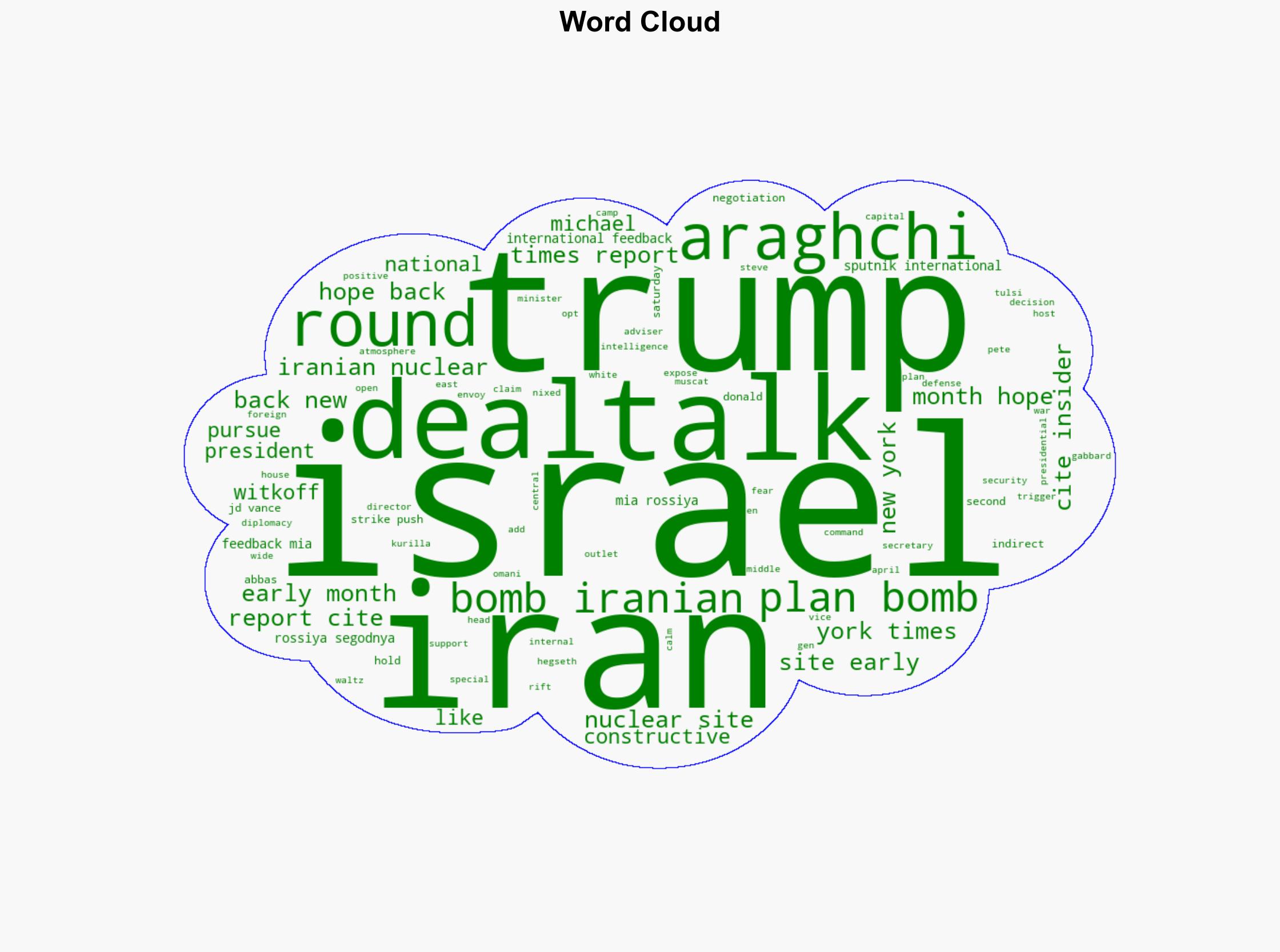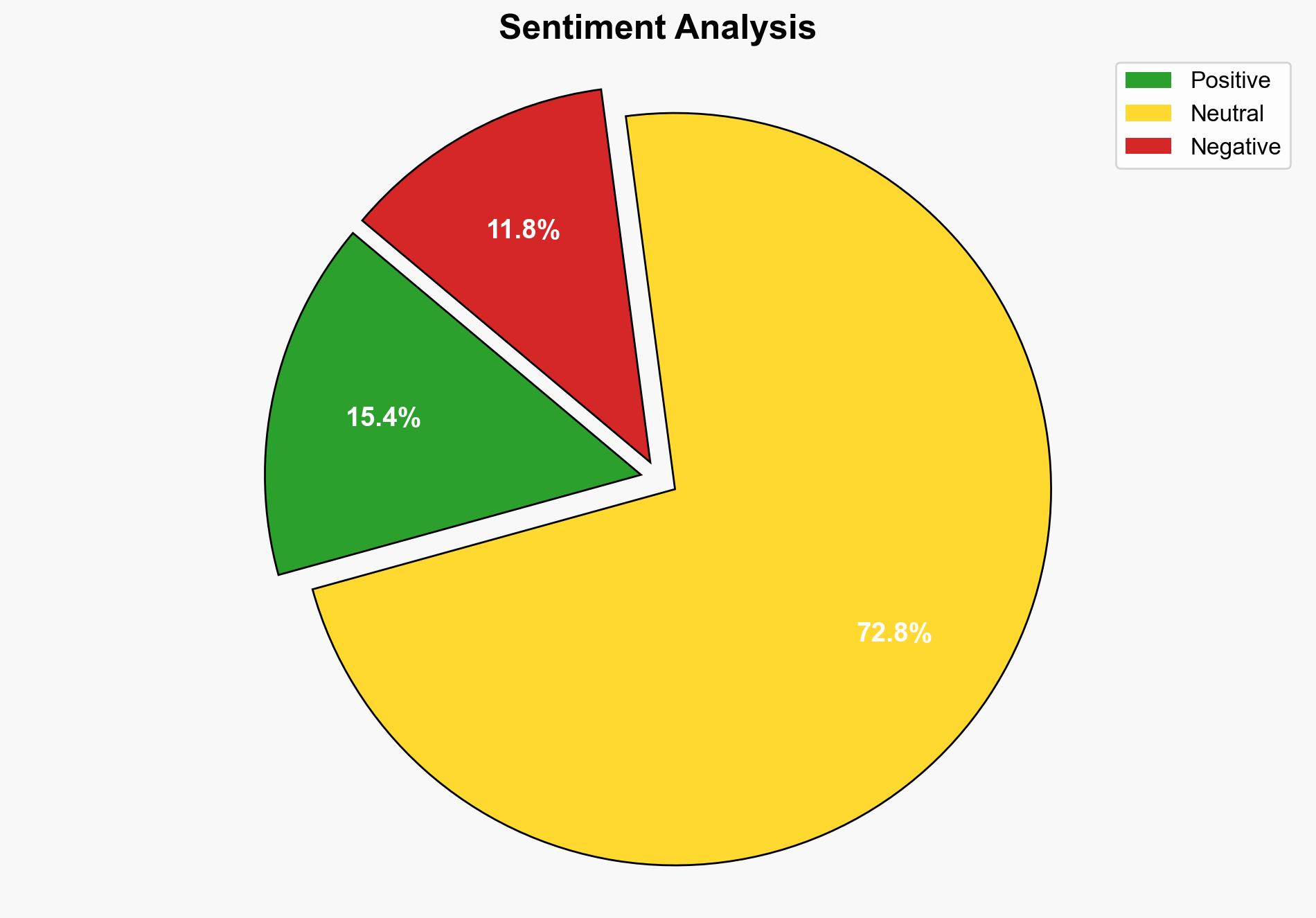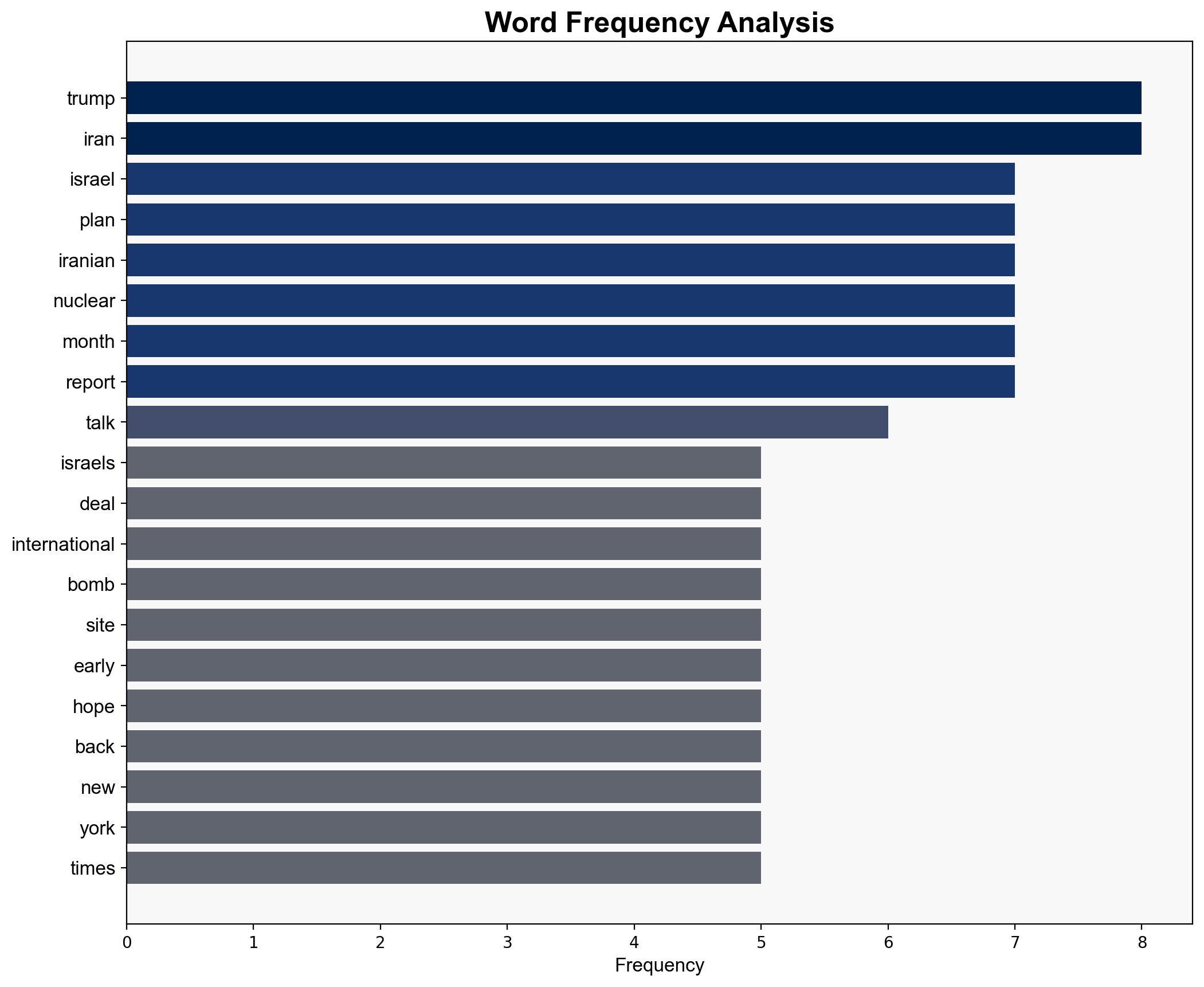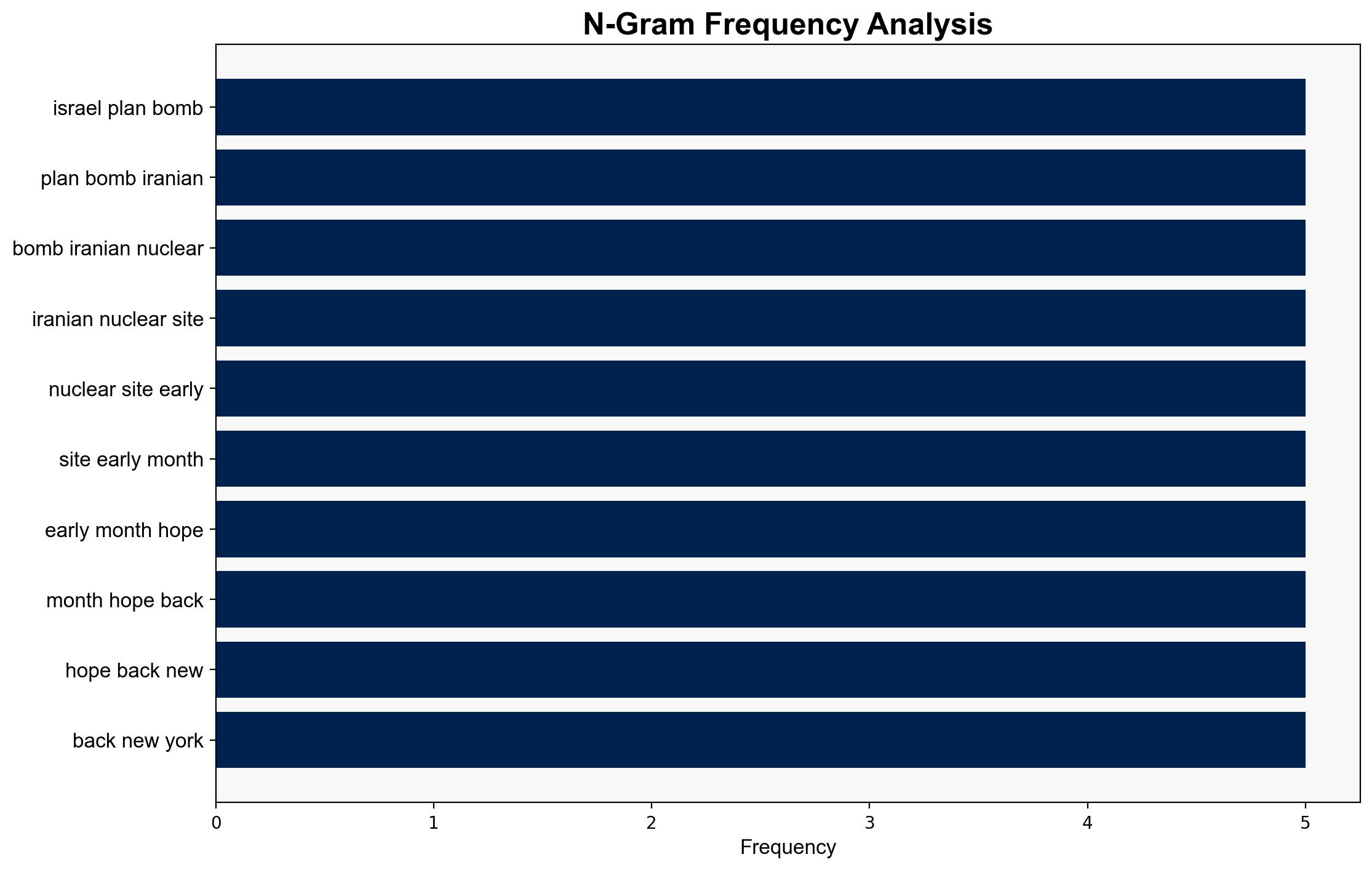Trump Nixed Israels Iran Strike Pushed For Deal Instead – Sputnikglobe.com
Published on: 2025-04-17
Intelligence Report: Trump Nixed Israel’s Iran Strike, Pushed For Deal Instead – Sputnikglobe.com
1. BLUF (Bottom Line Up Front)
The decision by Donald Trump to pursue a diplomatic nuclear deal with Iran, rather than supporting Israel’s planned strike on Iranian nuclear sites, marks a significant shift in US foreign policy. This move has created internal divisions within the US administration and has set the stage for renewed diplomatic engagement with Iran. Key recommendations include monitoring the progress of US-Iran negotiations and assessing the potential impacts on regional stability.
2. Detailed Analysis
The following structured analytic techniques have been applied:
SWOT Analysis
Strengths: Diplomatic engagement may reduce immediate military tensions and open pathways for broader negotiations on regional security.
Weaknesses: Internal divisions within the US administration could undermine the consistency and effectiveness of policy implementation.
Opportunities: Successful negotiations could lead to a comprehensive agreement that addresses nuclear proliferation concerns and stabilizes the region.
Threats: Failure to reach an agreement could escalate tensions and lead to military confrontations involving regional and global powers.
Cross-Impact Matrix
The decision to pursue diplomacy with Iran may influence neighboring regions by reducing immediate threats of military conflict, potentially encouraging other regional actors to engage in dialogue. However, it may also embolden Iran’s regional activities, affecting the security dynamics in the Middle East.
Scenario Generation
Scenario 1: Successful US-Iran negotiations lead to a reduction in nuclear capabilities and increased regional cooperation.
Scenario 2: Breakdown in talks results in heightened tensions and potential military confrontations, drawing in regional and global powers.
Scenario 3: Partial agreement is reached, leading to temporary de-escalation but leaving core issues unresolved, maintaining a volatile status quo.
3. Implications and Strategic Risks
The shift towards diplomacy poses strategic risks, including potential backlash from allies favoring military solutions and the challenge of maintaining a unified policy approach within the US administration. The risk of miscalculation or misinterpretation by regional actors remains high, potentially destabilizing the region further.
4. Recommendations and Outlook
- Enhance diplomatic efforts by engaging regional stakeholders to build a broader consensus on security and stability in the Middle East.
- Monitor internal US administration dynamics to anticipate potential policy shifts or inconsistencies.
- Prepare contingency plans for scenarios where negotiations fail, ensuring readiness for rapid response to potential escalations.
- Encourage transparency and communication channels between involved parties to reduce the risk of misinterpretation and conflict escalation.
5. Key Individuals and Entities
– Donald Trump
– Michael E. Kurilla
– Michael Waltz
– JD Vance
– Pete Hegseth
– Tulsi Gabbard
– Abbas Araghchi
– Steve Witkoff





